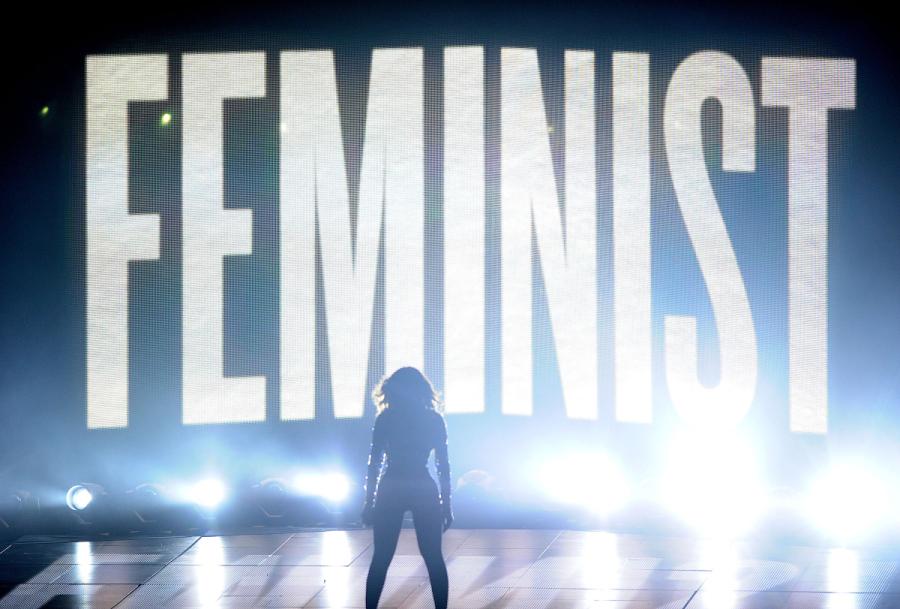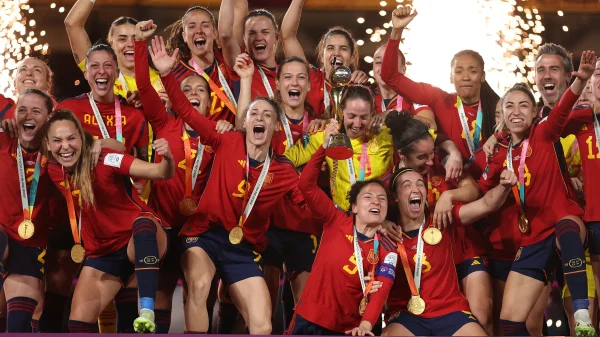Beyoncé and her F-word
Beyoncé: the Queen Bee (B or Bey) of pop culture. She embodies poise, talent, and the sheer flawlessness all combined, and yet she is also humble and likable and human. Many are impressed with the way she conducts herself, her self-awareness, and her vocal prowess, the scale of notes she can sing perfectly, and the emotional nuances she can infuse in them. Ms. Carter is just that high up in the stars, glowing with confidence and emanating virtues of equality and empowerment through her songs.
Recently, her name has been flying around in the media, from pieces about her supposedly estranged marriage to rap savant Jay-Z, about her adorable daughter Blue Ivy, who’s more famous than I can ever aspire to be, and about her latest number-one album, Beyoncé, which was released without any prior advertising. More recently, headlines have spotlighted her performance at the MTV’s Video Music Awards (VMAs) this year, where she received the “Michael Jackson Video Vanguard Award.”
At this year’s show, which took place on August 24, Beyoncé was celebrated for her past accomplishments. With her husband and daughter and other celebrities nearby, she took the stage and delivered a breathtaking show of songs from Beyoncé. Aside from her immaculate vocals, perfectly in-time choreography, and picturesque hairflips, she commanded The Forum and stole the show. After the VMAs, the two things most of the press wrote about were Miley Cyrus’s unexpected invitee―a young homeless man who accepted her “Video of the Year” Award for the video “Wrecking Ball”―and, of course, Beyoncé’s tour de force.
In her performance, Beyoncé did everything one could want and more. However, what polarized some viewers was when the word “feminist” was projected behind her in blue, blaring, and beautiful letters. For some, the term carries a negative connotation because they think it only includes women and denotes “female superiority.” That is a misconception, an unfortunately prevalent one. Rather, feminism means gender equality. It is equally male, female, and non-gender-binary empowerment that focuses on a person’s merit and skills rather than on biological traits. It happens that nowadays women are largely objectified and marginalized socially and even legally in some countries, often through unequal pay for the same work. This is why Beyoncé speaks up for feminism any time she can.
For example, she sings songs about female empowerment. The catchy melody “Who Runs the World (Girls)?” stems from the fact that world leaders are usually males. When she sings this song, it is not as a slight to men in public office who rightfully earned their positions and who promote social good. Rather, she sings it to encourage women to recognize they also have the potential to “run the world” like men. It is a matter of leveling the field, not tearing men down. There’s another misconception where some think that by trying to promote women’s rights, feminists are somehow also trying to diminish men’s rights. That is not true. Saying one person has the right to vote does not negate the other person’s right to vote.
Beyoncé sings to encourage women of all ages to follow their dreams and not be scared of the obstacles, of which there are plenty. These obstacles can and (it is hoped) will be overcome. Ms. Carter tries to knock these down through her music and through other forums, such as an essay she wrote in January for The Shriver Report titled “Gender Equality is a Myth!”
At the VMAs Beyoncé’s stunning performance demonstrated why she is a cultural icon. She is much more than a talented singer and dancer. She did more than convey her message of love, belief, and hope for others. She challenged the perception of the word “feminist” through her performance, showing that feminists come in different forms. She’s a social activist, a messenger, and a speaker for a new wave of progress through pop culture. She’s a decoder of gender definitions and a demolisher of social barriers. She is Beyoncé. And she is a feminist.
Sources: independent.co.uk, youtube.com, tumblr.com, wikipedia.org












